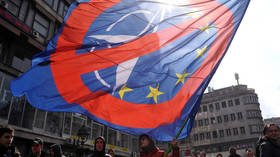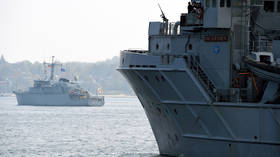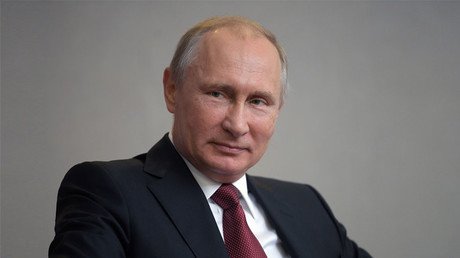‘Forgive, but not forget’: Serbia won’t be in NATO, leaders say 20yrs after Yugoslavia bombing

Serbia will never be part of NATO, even if it is the only non-member European country, the country’s defense minister, Aleksandar Vulin, said during anniversary events of the 1999 NATO bombing of former Yugoslavia.
Vulin said on Saturday that Belgrade has chosen to be militarily neutral at all times.
We made this choice because we were bombed, but first of all because we will never do to other nations what they have done to us
On March 24, Serbia marks 20 years since the 1999 NATO bombing that saw hundreds of civilians killed and many more injured. Countless civilian structures across the country were left in ruins after the airstrikes.
“We won’t be in NATO, I made it clear speaking to [Secretary General Jens] Stoltenberg,” Serbian President Aleksandar Vucic said in a sit-down interview with Russia’s Channel 1 on March 22. Serbia, which was the heartland of former Yugoslavia, “isn’t something that you can break down or destroy,” he said.
Yes, we are ready to forgive but we will never forget.
The NATO bombing also polluted the land with depleted uranium. The toxic substance used for armor-piercing munitions is believed to be the cause of the spike in cancer cases today.
Serbian children below the age of 15 are diagnosed with cancer almost thrice as much as somewhere in Europe, Danica Grujicic, head of neuro-oncology at Serbia’s Clinical Center, told RIA Novosti. “I started asking myself if we are doing something wrong,” she said, “they have surgery as ever before, they get radiotherapy and die one year after.”
“We can’t rely on being reimbursed for our losses, nor can we expect a punishment of those who took part in this horrid crime,” Vucic stated. “But the most important thing now is [to ensure] that this will not happen to us again.”
Also on rt.com How NATO bombed Serbs into submission and left toxic legacy behind (DOCUMENTARY)The bombings started following the incident in central Kosovo’s village of Racak, an Albanian militants’ stronghold. Serbs were blamed for slaughtering dozens of Albanian civilians on January 15, 1999. However, there were some doubts about the authenticity of the claims.
“This was a pure provocation to start the bombings,” alleged Vladimir Chizhov, Russia’s envoy in the EU. He suggested that the accusations could have been false and the bodies actually belonged to Albanian insurgents.
Subscribe to RT newsletter to get stories the mainstream media won’t tell you.














